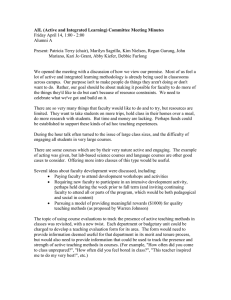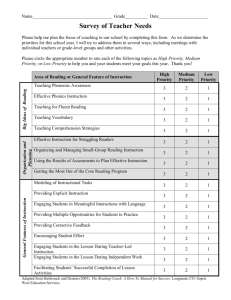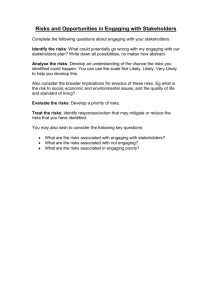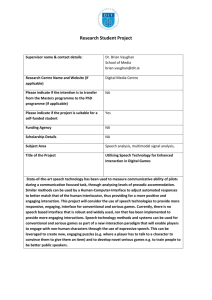5-16-2000
advertisement
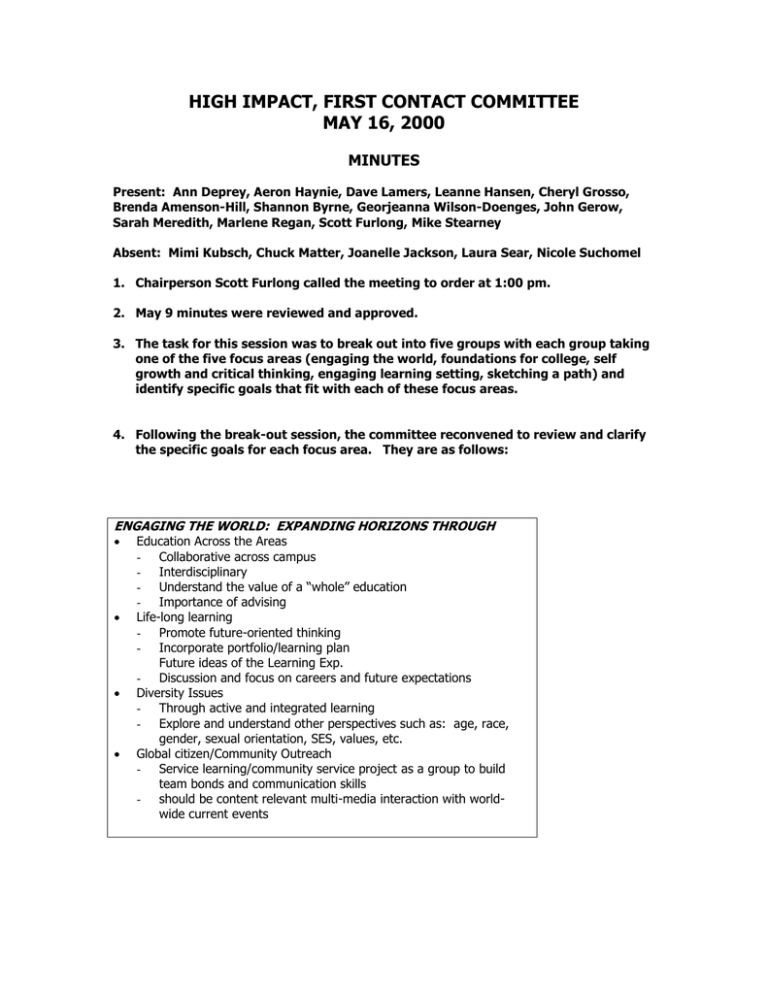
HIGH IMPACT, FIRST CONTACT COMMITTEE MAY 16, 2000 MINUTES Present: Ann Deprey, Aeron Haynie, Dave Lamers, Leanne Hansen, Cheryl Grosso, Brenda Amenson-Hill, Shannon Byrne, Georjeanna Wilson-Doenges, John Gerow, Sarah Meredith, Marlene Regan, Scott Furlong, Mike Stearney Absent: Mimi Kubsch, Chuck Matter, Joanelle Jackson, Laura Sear, Nicole Suchomel 1. Chairperson Scott Furlong called the meeting to order at 1:00 pm. 2. May 9 minutes were reviewed and approved. 3. The task for this session was to break out into five groups with each group taking one of the five focus areas (engaging the world, foundations for college, self growth and critical thinking, engaging learning setting, sketching a path) and identify specific goals that fit with each of these focus areas. 4. Following the break-out session, the committee reconvened to review and clarify the specific goals for each focus area. They are as follows: ENGAGING THE WORLD: EXPANDING HORIZONS THROUGH Education Across the Areas - Collaborative across campus - Interdisciplinary - Understand the value of a “whole” education - Importance of advising Life-long learning - Promote future-oriented thinking - Incorporate portfolio/learning plan Future ideas of the Learning Exp. - Discussion and focus on careers and future expectations Diversity Issues - Through active and integrated learning - Explore and understand other perspectives such as: age, race, gender, sexual orientation, SES, values, etc. Global citizen/Community Outreach - Service learning/community service project as a group to build team bonds and communication skills - should be content relevant multi-media interaction with worldwide current events 2 ENGAGING LEARNING SETTING Selection “process” for interested faculty - Training/faculty development prior to start of course - Development of a resource library - Understanding learning styles and using different techniques - Ongoing support and assessment Option to collaborate with others – co-teach with faculty and/or academic staff Using upper class students as collaborators in seminar - Selection/training Appropriate physical environment FOUNDATIONS FOR COLLEGE (SKILLS) (skills incorporated into content of course) Communication - writing - oral/presentation - discussion/ listening - technological Reading - close reading/analysis - study skills Academic Honesty - plagiarism - cheating - citations (must document sources/other ideas) * Support Services to assist in skill development will be utilized “as needed” or “as appropriate”. SELF GROWTH AND CRITICAL THINKING – “engaging the mind” Practice critical thinking as a process of evaluating information and determining significance. To stimulate intellectual curiosity. To heighten student awareness of value systems. To examine ways in which students learn. Create an opportunity for students to reflect on their own thinking. To teach students how to find, evaluate, organize and use information in all of its formats. To practice creative thinking. 3 SKETCHING A PATH – CLEARING A PATH Students will be able to identify key components in developing their student portfolios. Students will be able to have a rough draft of their learning plan by the end of the seminar/course. Students will be able to identify outlets/opportunities for co-curricular activities. Students will be able to identify appropriate academic and student service resources to assist them in the development of their learning plan and portfolio. Students will have at least one meeting with an advisor to discuss the path they are “sketching/clearing themselves. 5. The committee had a brief discussion regarding the role of faculty as advisor. Discussion focused on how the advising process should be the shared responsibility between students, faculty and staff. 6. The agenda for the next meeting will be on framing in the context and structure of the course. 7. The meeting adjourned at 3:04pm. The next meeting will be on Thursday, May 18 at 1:00pm-3:00pm in Alumni A, University Union. M. Regan
